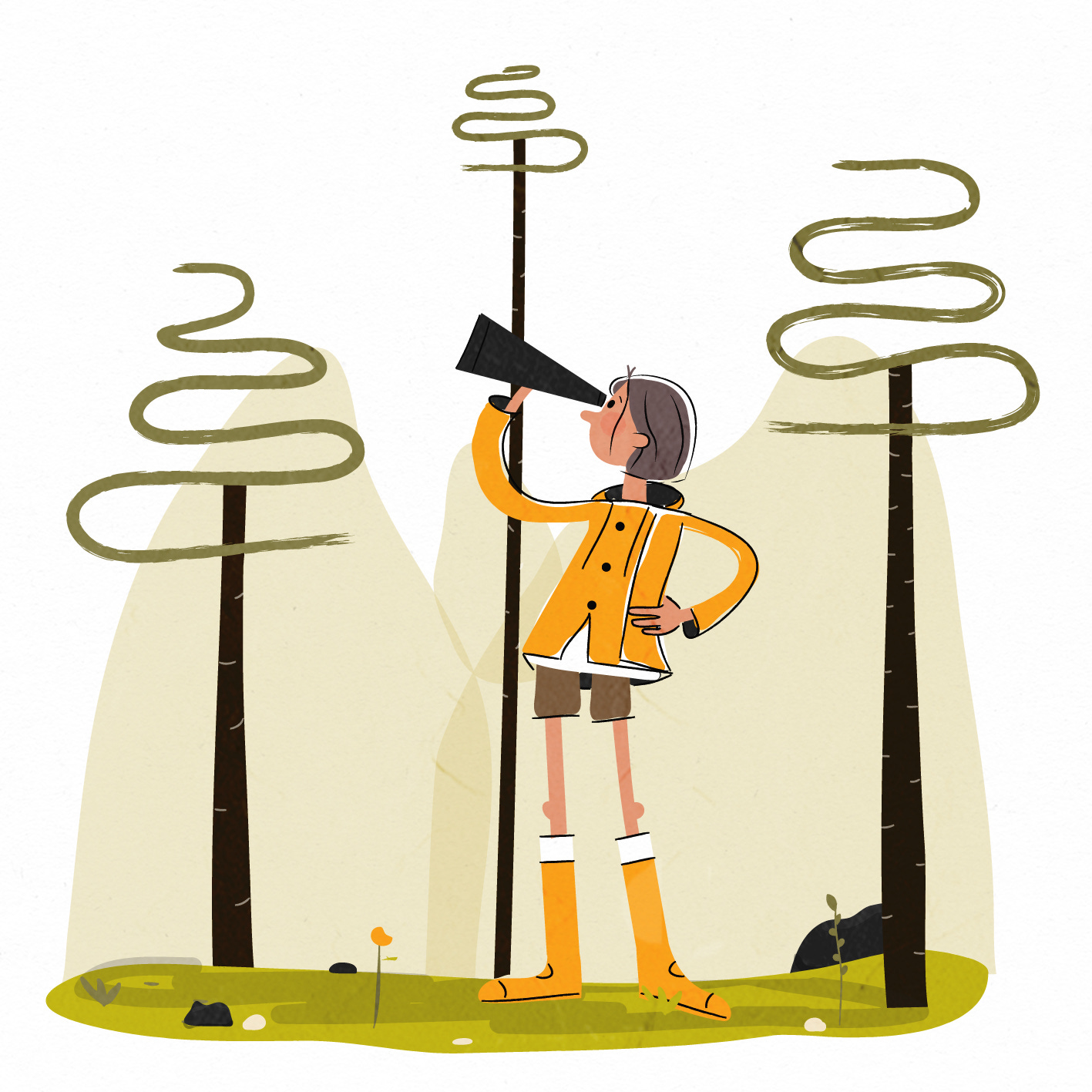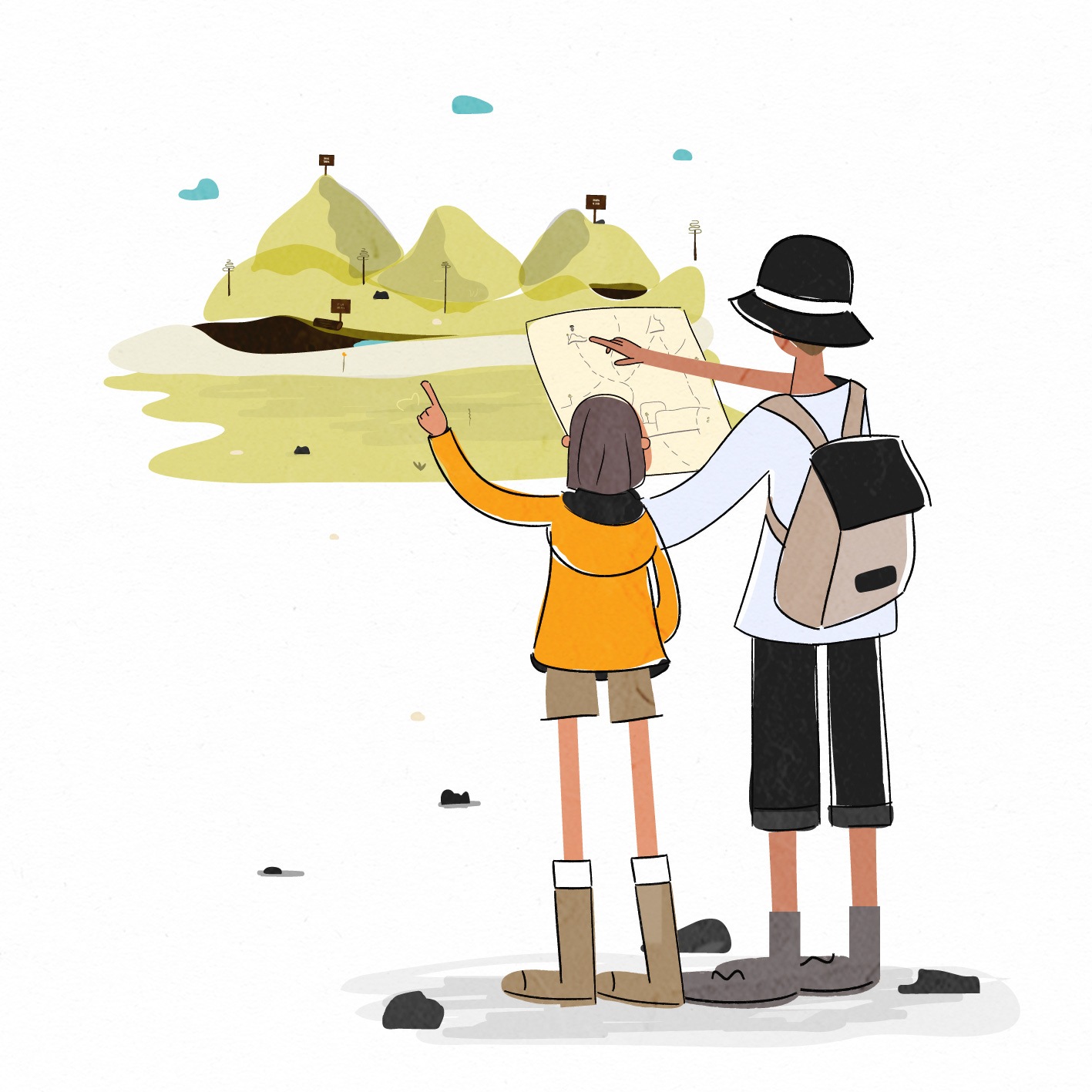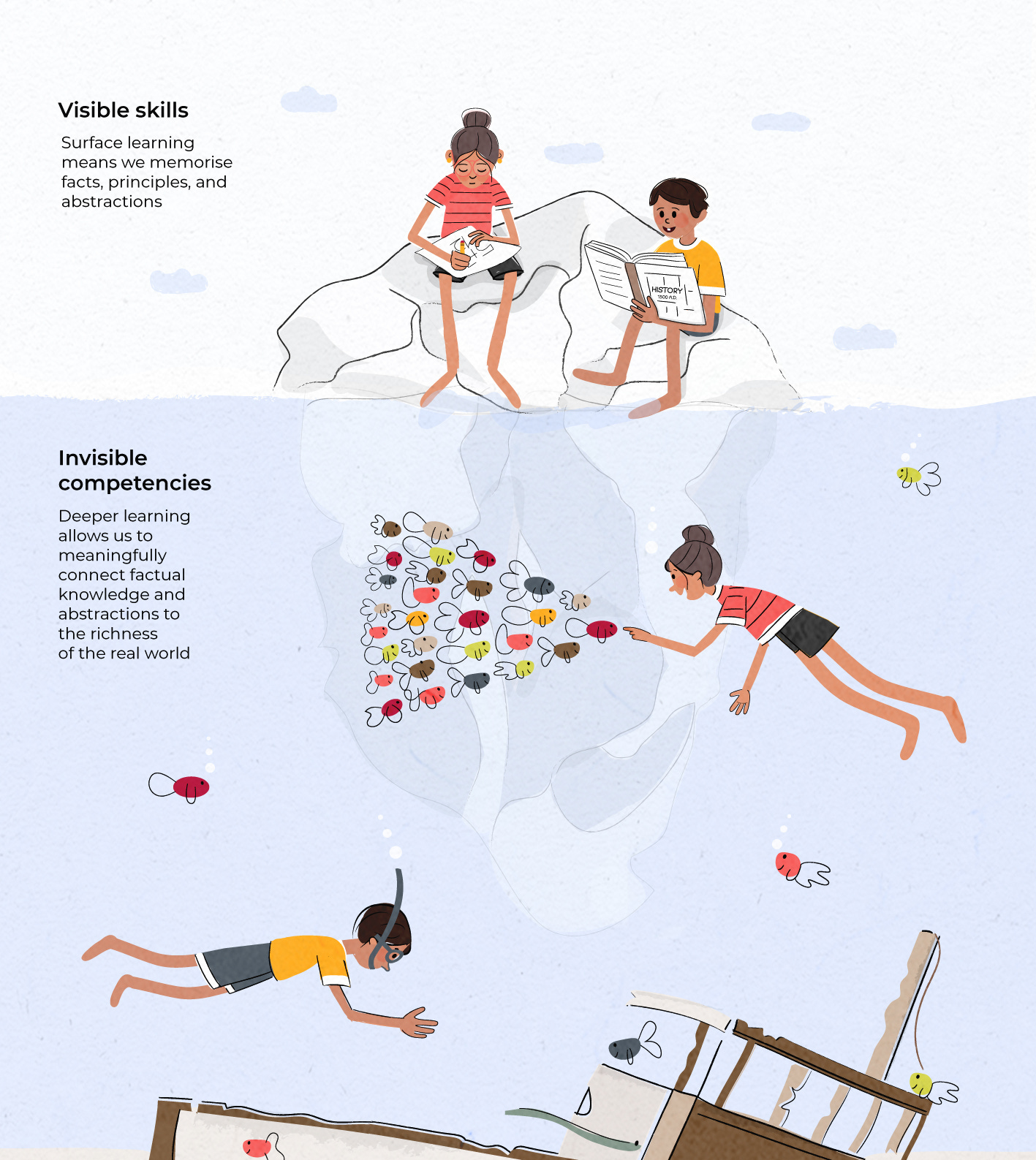How can we personalize learning?
Ten commandments we live (and learn) by
The US Air Force had a serious problem on its hands in the late 1940s. Its planes were dropping from the skies at an alarming rate. Fingers were pointed at pilot error. The real culprit turned out to be a decades-old flawed cockpit design based on outdated measurements of pilots. To address this, the Air Force commissioned a massive study to measure over 4,000 pilots across 140 dimensions. The thinking was that this data would be used to design a standardized cockpit that fit everyone well. Later, with all the numbers crunched they went back to see how pilots would fall within the averages derived from the study. The Air Force found that not a single pilot out of 4,063 fit the average on all measures. It turns out there was no average pilot. There is an even more profound nugget of truth in here. Designing for the average means designing for no one.
(You can listen to this article in a podcast format. Pretty decent rendition by NotebookLLM)
It’s one of those buzzy phrases in education—“personalized learning”. In an era where everything from your apron to your apartment is bespoke, it is no surprise we want a perfectly tailored education that fits our unique needs. For decades, alternative educators have argued that standardized, one-size-fits-all education actually fits no one. Neuroscientists have joined that chorus now. The opening anecdote is from The End of Average, a wonderful book that discusses how averages just don’t make sense when dealing with complex systems. And education and learning—and your child—are as complex as systems can be. (Fun fact: Ogi Ogas, my co-author on Journey of Mind, is also the co-author of The End of Average and worked on it during a stint at the Harvard School of Education with Todd Rose.)
So how do we go about drawing curtains on the average, and designing for the person? How do we personalize learning?
This Jordan Peterson meme, funny as it is when taken out of context, makes perfect sense here. We find ourselves revisiting each word to understand its many layers and flavors. What does it mean to personalize? What is learning?
How should I teach geometry to a ten-year-old who struggles with it and is far more interested in graphic novels?
This is the kind of question that typically comes to mind when thinking about personalization. We find that this is too narrow a framing. It assumes a child of a certain age must know a certain set of things. That the struggle is a problem, and a problem with the child, not the curriculum. That their interests come in the way of useful learning. These are all untrue. And to understand why, we find ourselves drilling to the bedrock. Wait, what is learning?
What we find incredibly useful instead is using a vivid and well-fitting metaphor that immediately conveys what we are talking about, because it taps into what we already know. And the metaphor we keep coming back to is of learning as exploration. Learning is as rich and varied as life itself. It is the journey through the landscape of life and its many possibilities where we gain knowledge, know-how and wisdom. With this as our guiding metaphor, here are our commandments for personalizing learning that also allow us to see what meaningful learning is, and isn’t.
Get out of the way
We are saddled with this wrong notion that kids need a lot of handholding to get through their early years. With each passing year those early years stretch from infancy to graduate school. The end result is we take away their ability to be independent. Instead, we must trust their ability to do things on their own.
We must get out of the way because children have what it takes to learn on their own. They are relentlessly curious. They are soaking it all in, all the time. When we come up with meticulously detailed plans to teach them the perfect way and to leave no one behind, we are very much getting in the way with our plans and intentions.
Those are our plans, not theirs. Human minds, even newly minted ones, have a way of knowing when the plans aren’t their own and switch off. For learning to stick, whether personal or impersonal, it must be self-directed. And it’s self-directed when we get out of the way and let them explore and walk down the paths they are interested in.
Guide gently from the side
But getting out of the way does not mean you cannot help. You can point them in the right direction. You can reassure them when frustrated. We adults have more yards and years of experience on us. We can use that well, but while remembering that simply taking them down the path makes it easy to forget just as fast. They must make the trek on their own. Offer a different perspective. Help don’t hover.
Focus on attitude, not altitude
Grades were supposed to be the means but became the ends. It was never supposed to be about grades. It was always supposed to be about the learning, which could be measured with grades. But grades took on a life of their own and everyone ended up “teaching to test”. Grades are bad in other ways too. They put labels on kids that become so sticky they become part of their identity. I am just bad at Science. I suck at Math. Not true. Kids are magical creatures in their ability to grow and change every single day. What they find insurmountably hard today, becomes a hop, skip, and a jump weeks, months, or years from now. Realizing and internalizing that they can get it eventually is far more important than getting it right now.
Allow for wandering and wondering
Grades and exams train us for efficiency. How quickly can we get through something? Get to the goal fast. But learning is not just about knowing a single path. It is about forming a model, a worldview, in our heads of the overall landscape. Being able to ask—and then answer for ourselves—"What if?" "Why not this?" "How about this?" is what allows us to build this model. You learn more about the roses when we stop to smell them instead of just cataloging them with selfies. The best way to do this in classroom-like settings is to pick problems that allow for multiple answers and paths.
It’s the journey, not the map
The curriculum is the one-size-fits-all well meaning map that fits no students. We are all competent adults despite the curriculum, not because of it. It speaks to our incredible abilities as lifelong learners that we function as contributing members of society doing difficult things that were never taught in school! You know that’s true for you and pretty much everyone else you know. That map was supposed to help us when we got lost, not block our view entirely and prevent us from seeing the world. Learning is meaningful when it is connected to our world and what we see as valuable in it. Experiences that bring in the real world make learning far more sticky and memorable. If your worksheet is too narrowly focused on, say the grammar of multi-clause conditional sentences, like this one, the map is blocking out the world. Instead, let them discover them in books or games of their choice. Have them pay attention to them when making up stories or rules for pretend-games with their friends.
Group expeditions & solitary hikes
For too often we think of learning as a solitary journey where we must individually acquire information. We sit together in class, but we are not supposed to talk to each other. What a shame! It curtails the most profound learning mode kids have–the ability to imitate and absorb everything from their playmates. Spend any time with kids and you’ll see that the ones they are most eager, even desperate, to learn from are the cool older kids and cousins. We should enable that with play and group activities. But that can be balanced with me-time where they are allowed to shut out the world and do their thing. If a collaborative science project involving changing colors of flowers leads your child to dive deep into the capillary action of different items in the house, applaud them.
Pack light, but pack smart
Backpacks are getting heavier by the year. There’s a well-meaning effort to cram ever more, to get kids ready for life and work. We need to be smarter. We live in a world of abundance where there is a wealth of resources to learn from. What we need is to understand and nourish what deeper invisible skills are. Whether it is chemistry, geography, economics, or history, we are tapping into the same foundational skills of critical thinking, data analysis, reading comprehension, and storytelling. New subjects and topics will come and go as the world changes, but those skills remain the same.
Expect bad weather
There’s no bad weather, only bad clothing. This is a common saying in Finnish schools. This is a great metaphor for life too. Standardized tests suggest life’s problems come neatly identified and labeled and you can swim through life by learning how to tick the right boxes. Ah but life like weather is a turbulent system with no certainties. The only thing that is certain is uncertainty and learning how to work with ambiguity and incomplete information is important.
Many paths to the summit
We would not be discussing personalized learning in a pre-industrial age where opportunities were largely predestined and we did what our parents and great-grandparents did. We are incredibly privileged to live in bountiful times where there are jobs and careers that allow us to tap into a very varied set of skills. Success and happiness come in many flavors and are found on many paths.
And finally, the most important one of all, which really is the foundation on which the rest of the commandments can stand.
Be the basecamp
Learning mirrors our philosophy for life. Life isn't about the accumulation of things, whether it is intangibles like knowledge or the more material things we can now buy with a finger tap. It is about building a web of relations that connects us with family, friends, and community. The glue for this is love. Learning is not just cognitive. All learning is deeply emotional. We learn because we care. And we can learn widely and deeply when we know we are cared for and loved. We can push forward because someone has our back. We can pedal confidently when we know there’s someone there to catch our stumbles, and to cheer when we get it right.
The most important thing we can do is to love and listen.
PS: You can listen to this article in a podcast format. Pretty decent rendition by NotebookLLM)




